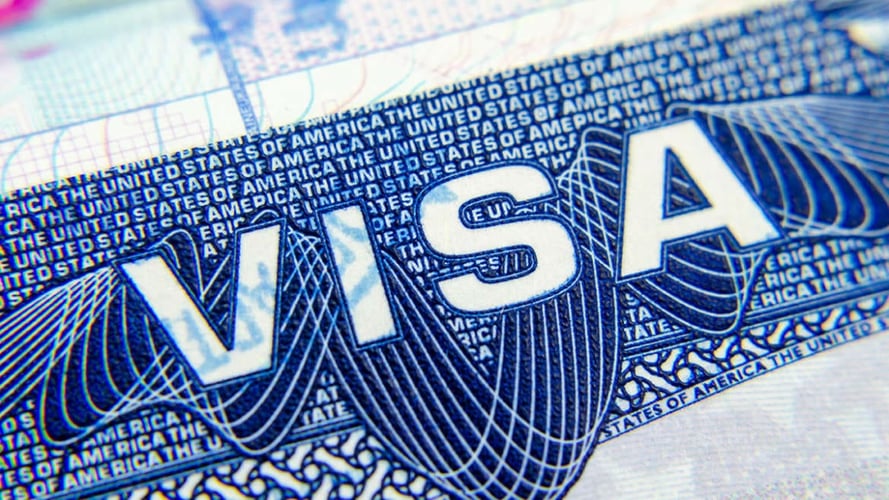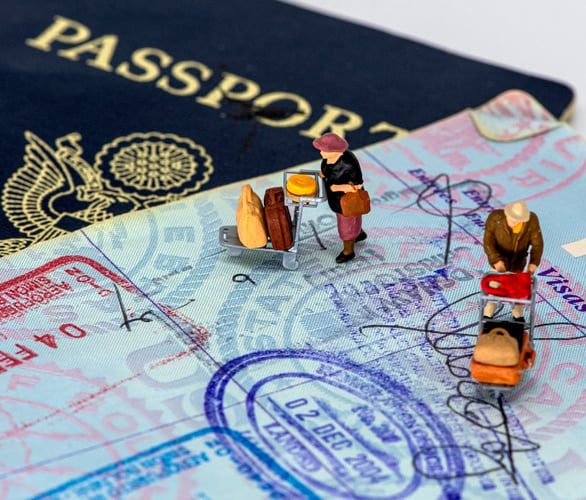
After a serious crime happens, it's normal to feel shaken, especially for people who don’t have citizenship or a green card. Questions about safety, police involvement, and what comes next can pile on fast. For some, the fear of deportation might stop them from coming forward at all. But there is a possible path forward for those who qualify. A U visa for crime victims was created to offer protection and a sense of stability while criminal investigations play out.
This visa doesn’t solve everything, but it can give some peace of mind to people who are helping law enforcement after surviving violent or abusive situations. It’s a way to move forward, live without hiding, and focus on healing. In this post, we’ll break down what the U visa is, what happens after a crime, and why each step matters—especially during the colder months when court offices may slow down in cities like Denver.
What the U Visa Is and Who It’s For
The U visa was created to support victims of certain crimes and encourage them to report those crimes without fearing immigration consequences. It’s meant for people who have suffered mental or physical harm and are willing to help police or other officials investigate or prosecute the crime.
Certain crimes are included under U visa rules. These may include assault, sexual abuse, trafficking, domestic violence, stalking, kidnapping, and other serious offenses. Theft or general property loss usually doesn’t qualify. It's the type of harm and the willingness to work with police that matter most.
To be considered, a person has to prove a few main things. They must show they were the victim of a qualifying crime, that they suffered harm as a result, and that they cooperated (or are still cooperating) in some way with law enforcement. Every application also needs a signed certification from a police department, prosecutor’s office, or judge. This isn’t a quick process, but it gives people a chance to stop living in fear and start building a safer future.
Novo Legal works with immigrant victims of crime in Denver and surrounding areas to help organize their U visa cases, focusing on the requirements for eligibility and supporting applicants with law enforcement certifications.
Steps to Take After the Crime Happens
The first few days after a crime can feel overwhelming. But small actions during this time can make a big difference later if someone decides to apply for a U visa. One of the most important first steps is reporting the crime. Without a police report, it becomes harder to prove what happened or to get the required certification later.
Other early steps include getting medical treatment, speaking to a counselor, or finding a safe place to stay. All of this not only protects someone's health, but also creates useful records that help show they were harmed.
People don’t need to know everything about immigration or visas right after something terrible happens. But saving copies of paperwork, writing down dates, and talking to trusted sources can build a strong foundation for the road ahead. Being quiet or not reporting makes the legal process harder later on
Getting Help from Law Enforcement
One part of the U visa process that confuses many people is the law enforcement certification. Without it, an application can’t move forward. This signed form confirms that the person was a victim and that they either reported the crime or helped in some way with an investigation or court process.
There’s a lot of fear around talking to police, especially for people without immigration status. Some worry it might bring attention to their living situation or lead to more harm. But helping law enforcement doesn’t have to mean going to court or testifying. Sometimes it’s enough that a victim reported the crime, responded to follow-up questions, or answered truthfully. What counts as “helping” can be small but still give weight to the case.
Each law enforcement agency gets to decide how and when they’ll sign these forms. That makes it harder to predict what will happen. But having that form signed early can keep things from stalling later. If the case is old or unresolved, it might take more time to explain what took place.
Timing and Documentation: What Matters Most
There isn’t a fixed deadline to file a U visa, but time still matters. The longer someone waits, the harder it can be to collect the right documents. Memories fade, police records get shelved, and people might move or forget key details. That’s why acting sooner can be helpful.
Helpful documents include:
- Police reports or case summaries
- Court papers if charges were filed
- Medical or counseling records showing any injury or trauma
- A written statement from the victim
- Any written notes from places that offered help
Putting these pieces together paints a picture of the harm and how the person responded. It also shows they’ve been honest since the start. Being clear and consistent through the process gives immigration officers a better chance to understand what happened.
When offices close for holidays in late fall, or when public services slow down in the winter, small delays can turn into bigger pauses. That can be hard for people already balancing work, kids, or trauma. Getting documents ready before the quiet season can help make progress feel less stressful.
Navigating the Legal Process with Support
The U visa process isn’t just about forms. It comes during a time when people are trying to recover, feel safe, and make sense of what happened. That’s why having the right support makes a difference.
A legal advocate can help with organizing papers, finding missing records, and making sure the story makes sense across all documents. They can also spot any past immigration situations or criminal history that might raise questions, helping people prepare for what might come next. This support can make the process less confusing and protect against paperwork mistakes.
In Denver, fall often brings fewer court dates and slower mail service. By late November, schedules are packed or winding down. Families juggling work, kids in school, and recovery from harm may find it harder to push through all the paperwork. Emotional support matters too. Simple encouragement and guidance can help someone stay focused and remind them they’re not alone.
Novo Legal has worked with victims of violence, trafficking, and other serious crimes to help organize, file, and follow up on U visa applications and related paperwork, even during the slower winter months.
A Path Forward Begins with One Step
Applying for a U visa for crime victims isn’t easy, but it can be an important step toward safety and certainty. Life doesn’t go back to normal overnight, but this application can create space to heal and work without constant fear.
Taking those first steps—reporting a crime, saving documents, talking with someone about what happened—can make future progress easier. With the holiday season coming and courts preparing to close or slow down, now is a smart time to get ready. Waiting often brings more stress, and the best time to act is before things get too quiet to move forward.
If someone in your family is thinking about applying for a U visa for crime victims, it helps to start with good information and steady support. At Novo Legal, we listen closely, take things step-by-step, and create space for people in Denver who need both legal help and time to feel safe again.



